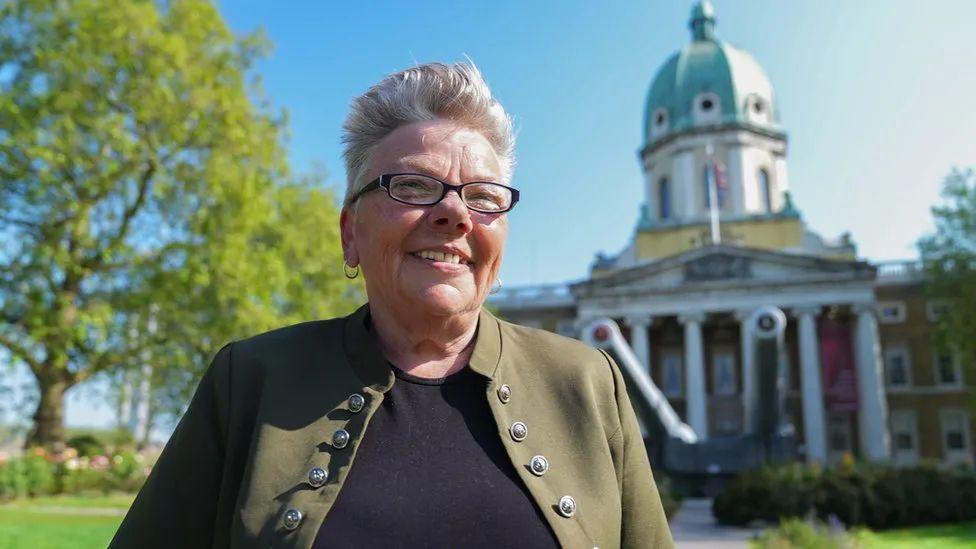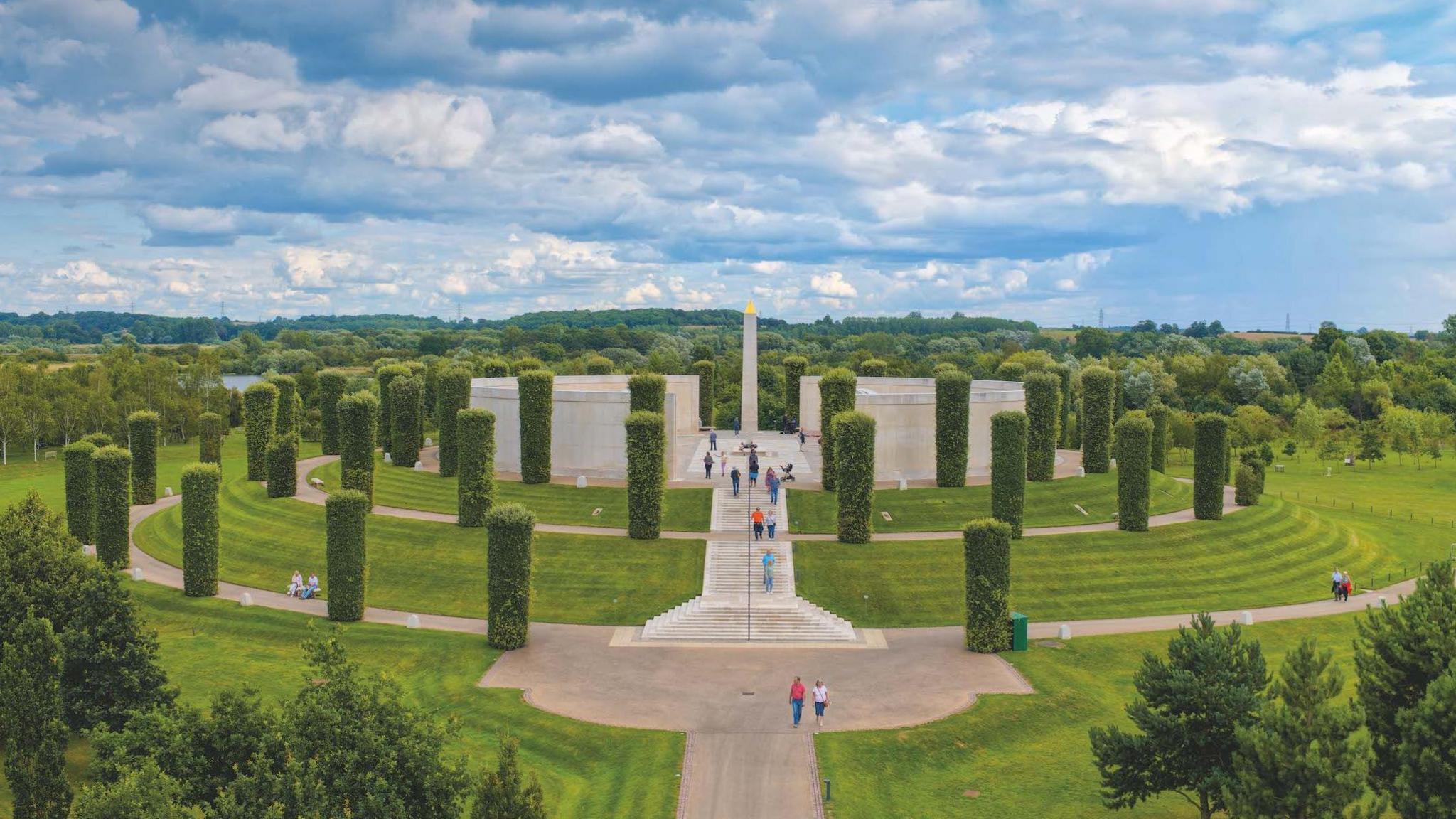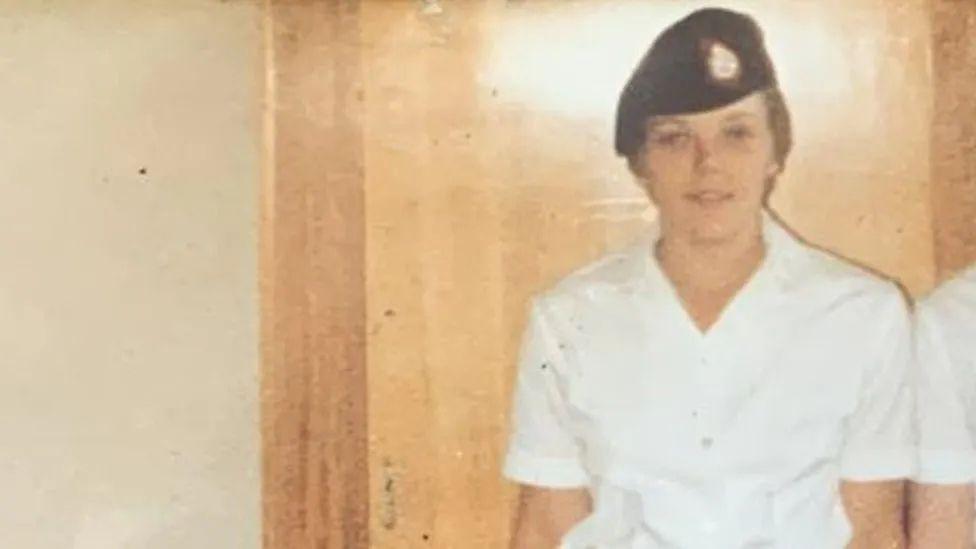LGBT veterans memorial: ‘We're not a dirty secret’

After being dismissed, Carol Morgan hid her sexuality for more than 30 years
- Published
The UK's first memorial for lesbian, gay, bisexual and transgender armed-forces personnel is to be built at the National Memorial Arboretum.
The government has put £350,000 towards the project, which was one of 49 recommendations of an independent review, external into the historical treatment of people who were sacked or forced out of the military for being gay.
It was illegal to be gay in the British military until 2000.
Campaigners have told BBC News while a memorial is welcome they remain focused on winning compensation from the government for those affected.
PM says sorry to LGBT veterans for past gay ban
- Published19 July 2023
LGBT veteran in 'last battle' for navy ban compensation
- Published20 February 2024
LGBT staff to share impact of UK military ban
- Published19 January 2022
Charity Fighting With Pride said the community will be consulted on how to build the memorial at the 150-acre site in Staffordshire, which commemorates those who lost their lives in the armed forces.
In 1978, Carol Morgan signed up for 22 years in the Army, hoping to become a physical-training instructor.
But after falling in love with another female soldier, she was subjected to a four-day investigation that included psychiatric evaluations and intimate questions about her sex life.
During the investigation, she disclosed her sexuality to her bosses - and was immediately dismissed.

The National Memorial Arboretum contains more than 400 memorials
“We’ve always felt like we were swept under the carpet when they kicked us out,” Miss Morgan told BBC News.
“But this memorial will hopefully change that feeling.
"We won’t feel like a dirty secret any more.”
And it was important the memorial was built in the National Memorial Arboretum “because we’re no different to anyone else - but we were treated different for so long”.
During Miss Morgan’s time in the Army, she met several other lesbians who were also dismissed, some of whom have since died.
“This memorial is especially important to remember those who’ve passed before they could see the review happen," she told BBC News.
"It’s part of their legacy.

Carol Morgan signed up for 22 years in the Army - but was thrown out for being a lesbian
“As part of that, we also need [the government] to make sure the recommendations, including compensation, are put into action quickly.
“A lot of us are getting older or struggling financially, so that’s really important.”
On the release of Lord Etherton's report, Prime Minister Rishi Sunak apologised in Parliament, called the ban “an appalling failure of the British state” and promised compensation for those affected.
Craig Jones, who chairs Fighting With Pride, which campaigned for the independent review, said the community would be consulted on how the memorial should be created.
“We want to make sure the memorial is representative and a place for the peace and reflection," he said.
“A great deal of work remains to be done to lift the veterans most affected by the ban from the poverty inflicted upon them after the loss of careers.
“Too many face crippling debt, poor housing, social isolation and live with poor health and wellbeing.
"2024 must be the year in which all 49 of Lord Etherton’s recommendations for reparation are delivered.”
Veterans Minister Johnny Mercer said he was "proud" of LGBT veterans and "pleased that Fighting with Pride will help to deliver a memorial to honour them".
“We are committed to delivering on the recommendations made by Lord Etherton in his Independent review, at pace, and this memorial will take us one step closer to doing so,” he said.
A consultation will begin in “the coming weeks” and the memorial is expected to be unveiled in May 2025.
Details of how compensation will be paid and to how much each person will be entitled are yet to be released.